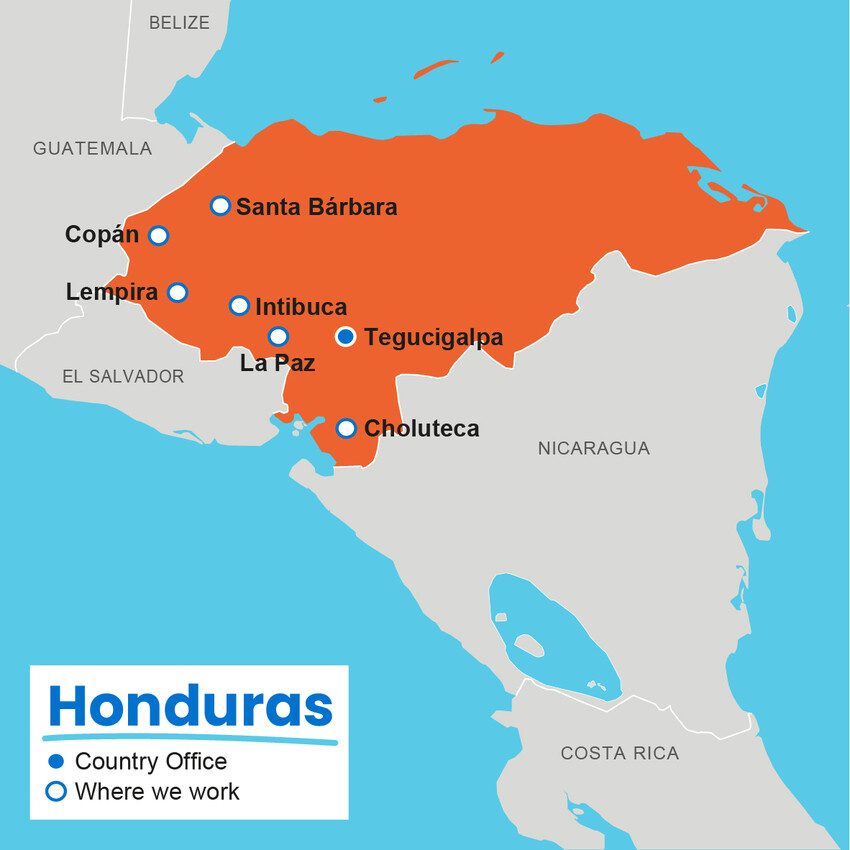Plan International Honduras
We advance children’s rights and equality for girls in Honduras
Plan International Honduras is an independent development and humanitarian organisation that advances children’s rights and equality for girls.
We believe in the power and potential of every child but know this is often suppressed by poverty, violence, exclusion and discrimination. And it is girls who are most affected.
We work in Lempira, Copán, Santa Bárbara, Choluteca, La Paz, Intibucá and San Pedro Sula. All of our work focuses on gender, inclusion, participation and citizenship.
